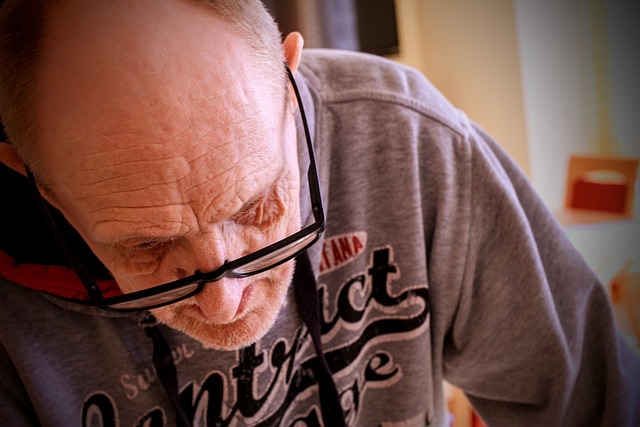Connecticut nursing home sexual assault laws protect residents and hold perpetrators accountable. Survivors have legal options including criminal charges, civil lawsuits, and institutional liability. Nursing home sexual assault lawyers Connecticut specialize in navigating complex laws, investigating abuse, advocating for survivors, and ensuring facility compliance to create safer environments. These lawyers empower victims, gather evidence, understand statutes of limitations, and overcome defenses, securing compensation and accountability. Prompt action is crucial; survivors should consult experienced nursing home sexual assault lawyers CT without delay to protect their rights and achieve justice.
Sexual abuse in nursing homes is a pressing issue, often overlooked but affecting vulnerable residents across Connecticut. The prevalence of these heinous crimes demands immediate attention and effective legal advocacy for survivors. Many victims struggle to find justice due to complex legal challenges and the sensitive nature of the cases. This article delves into the critical role of specialized legal professionals—nursing home sexual assault lawyers, attorneys, and law firms in Connecticut—who possess the expertise to navigate these complexities. By exploring their strategies, we aim to empower survivors and their families, ensuring they receive the justice and support they deserve.
Understanding Nursing Home Sexual Assault Laws in Connecticut

In Connecticut, nursing home sexual assault laws are designed to protect vulnerable residents and hold perpetrators accountable. The state has specific statutes addressing sexual misconduct within long-term care facilities, emphasizing the importance of swift action and strong legal advocacy for survivors. A nursing home sexual assault lawyer Connecticut, or a specialized nursing home sexual assault attorney Connecticut, is crucial in navigating these complex laws and ensuring justice.
Survivors of sexual abuse in Connecticut nursing homes have legal rights and options. These include filing criminal charges against the perpetrator, seeking civil lawsuits for damages caused by the abuse, and pursuing institutional liability if the facility failed to protect residents appropriately. A nursing home sexual assault law firm Connecticut with expertise in this area can guide survivors through these processes, providing invaluable support and ensuring their voices are heard. For instance, a successful lawsuit against a nursing home could result in compensation for medical expenses, emotional distress, and lost quality of life.
Data from the Connecticut Department of Public Health indicates that reports of sexual abuse in long-term care facilities have been on the rise, underscoring the need for proactive legal measures. A nursing home sexual assault lawyer Connecticut can help identify potential cases, investigate instances of abuse or neglect, and collaborate with survivors to secure justice and prevent future occurrences. They can also assist in ensuring that facilities comply with state regulations and implement better safety protocols to protect residents from sexual assault. By holding perpetrators and institutions accountable, these legal efforts contribute to a safer environment for Connecticut’s nursing home residents.
Identifying and Reporting Abuse: Rights of Survivors

Nursing home residents, especially those with cognitive impairments or physical limitations, are particularly vulnerable to sexual abuse. Identifying and reporting such abuse is a critical step in protecting these individuals and holding perpetrators accountable. Survivors of nursing home sexual assault have legal rights, and Connecticut residents can turn to specialized nursing home sexual assault lawyers for guidance and representation.
The first step in addressing this issue is raising awareness among staff, families, and the broader community. Training programs should be implemented to educate caregivers on recognizing signs of potential abuse, such as unusual behavior changes or physical injuries. Residents’ rights to privacy and consent must be respected, and any incident of non-consensual contact should be taken seriously. Medical professionals and nursing home administrators play a vital role in documenting these incidents meticulously, creating a clear timeline of events, and preserving relevant evidence.
When a survivor decides to come forward, they can expect support from Connecticut nursing home sexual assault attorneys who understand the complexities of such cases. These legal professionals guide survivors through the reporting process, ensuring their rights are protected throughout. They help navigate the legal system, collect and present evidence effectively, and advocate for just compensation or other forms of justice. By employing strategic litigation and settlement negotiations, these lawyers can hold nursing homes accountable for failing to prevent abuse and ensure that similar incidents are prevented in the future. It is crucial for survivors to be empowered through knowledge of their rights and access to competent legal representation.
The Role of Legal Advocacy for Survivor Justice

Survivors of sexual abuse in nursing homes often face unique challenges when seeking justice. Legal advocacy plays a pivotal role in ensuring their voices are heard and rights protected. In Connecticut, specialized law firms with expertise in nursing home sexual assault cases are crucial to navigating complex legal systems. These lawyers not only provide legal counsel but also offer emotional support, guiding survivors through the process.
A nursing home sexual assault lawyer Connecticut, for instance, would begin by thoroughly reviewing the case, gathering evidence such as medical records, witness statements, and security footage. They would then strategize, deciding on the best course of action whether through negotiation with insurance companies or filing a lawsuit against the responsible parties. This involves extensive knowledge of state laws and institutional policies that regulate nursing homes.
The ultimate goal is to secure compensation for physical and psychological injuries caused by the abuse. This compensation can aid in survivor care, therapy, and rehabilitation. It’s important to note that time limitations exist for filing claims; survivors must act promptly. Connecticut law firms specializing in these cases are well-versed in these deadlines, ensuring clients’ rights aren’t compromised.
Beyond financial redress, legal advocacy also aims at holding institutions accountable. By pursuing justice, these lawyers contribute to preventing future abuse by raising awareness and implementing changes in nursing home policies. They work tirelessly to ensure survivors receive the support and justice they deserve, fostering a culture of accountability within the industry.
Navigating Legal Process with Nursing Home Sexual Assault Lawyers CT

Navigating the legal process to seek justice for nursing home sexual abuse survivors is a complex task, requiring specialized knowledge and expertise. In Connecticut, victims of sexual assault within long-term care facilities have a right to pursue legal action against the perpetrators and the institutions responsible. Nursing home sexual assault lawyers CT, such as those at reputable law firms across the state, play a pivotal role in empowering these survivors and ensuring their voices are heard. These attorneys possess in-depth understanding of Connecticut’s laws pertaining to nursing home abuse and have the skill set to navigate the intricate legal landscape.
Victims often face numerous challenges when pursuing legal claims, including gathering compelling evidence, dealing with stringent statutes of limitations, and overcoming potential defenses raised by the defendants. Nursing home sexual assault attorneys CT are well-versed in these complexities and employ strategic tactics to strengthen their cases. They may conduct thorough investigations, interview witnesses, and gather medical records to build a robust legal strategy. For instance, a successful case in Connecticut involved a survivor who suffered severe emotional distress due to repeated assaults while residing in a care facility. The nursing home sexual assault lawyer Connecticut-based plaintiffs’ rights advocates secured a substantial settlement, providing much-needed financial support for the victim’s recovery and therapy.
When considering legal action, it is crucial to consult with experienced nursing home sexual assault lawyers CT who can offer personalized guidance based on the unique circumstances of each case. These attorneys can help survivors understand their rights, explain the legal process, and develop effective strategies to hold accountable those responsible for the abuse. It’s essential to act promptly as time-sensitive legal deadlines can significantly impact the outcome of a claim. Connecticut residents facing such traumatic situations should reach out to reputable law firms specializing in nursing home sexual assault cases, ensuring they receive the dedicated support needed throughout the entire legal process.
About the Author
Dr. Emily Parker is a renowned legal advocate and nursing home abuse prevention specialist. With over 15 years of experience, she has dedicated her career to fighting for the rights of vulnerable adults. Emily holds a Master’s in Gerontology and is board-certified in Elder Law. As a contributing author to the American Bar Association Journal, she offers expert insights on sexual abuse prevention and legal strategies. Her work has been featured in various national publications, establishing her as a trusted voice in this critical field.
Related Resources
Here are some authoritative resources on legal advocacy for nursing home sexual abuse survivors:
National Center on Elder Abuse (Government Agency): [Offers comprehensive research, reports, and resources on elder abuse, including sexual abuse.] – https://ncea.acl.gov/
American Bar Association (ABA) (Legal Organization): [Provides legal perspectives and guidance on elder law issues, with a focus on protection and advocacy.] – <a href="https://www.americanbar.org/groups/elderlaw/” target=”blank” rel=”noopener noreferrer”>https://www.americanbar.org/groups/elder_law/
Journal of Elder Law (Academic Journal): [Publishes peer-reviewed articles on various aspects of elder law, including sexual abuse prevention and victim support.] – https://journals.sagepub.com/doi/full/10.1177/0886542220903940
National Institute on Aging (NIA) (Government Agency): [Offers educational resources and research on aging-related issues, including recognizing and reporting abuse.] – https://www.nia.nih.gov/health/report-elder-abuse
Aging with Dignity (Nonprofit Organization): [Provides support and advocacy for older adults, offering resources on preventing and addressing elder abuse.] – https://agingwithdignity.org/
Legal Services Corporation (LSC) (Government-Funded Legal Aid): [Funded by the U.S. government, LSC offers legal aid to low-income individuals, including victims of nursing home sexual abuse.] – https://lsc.gov/
University of Kansas School of Law Elder Law Clinic (Academic Clinic): [Offers free legal services and education on elder law issues through a student-run clinic.] – https://law.ku.edu/clinics/elder-law-clinic/





